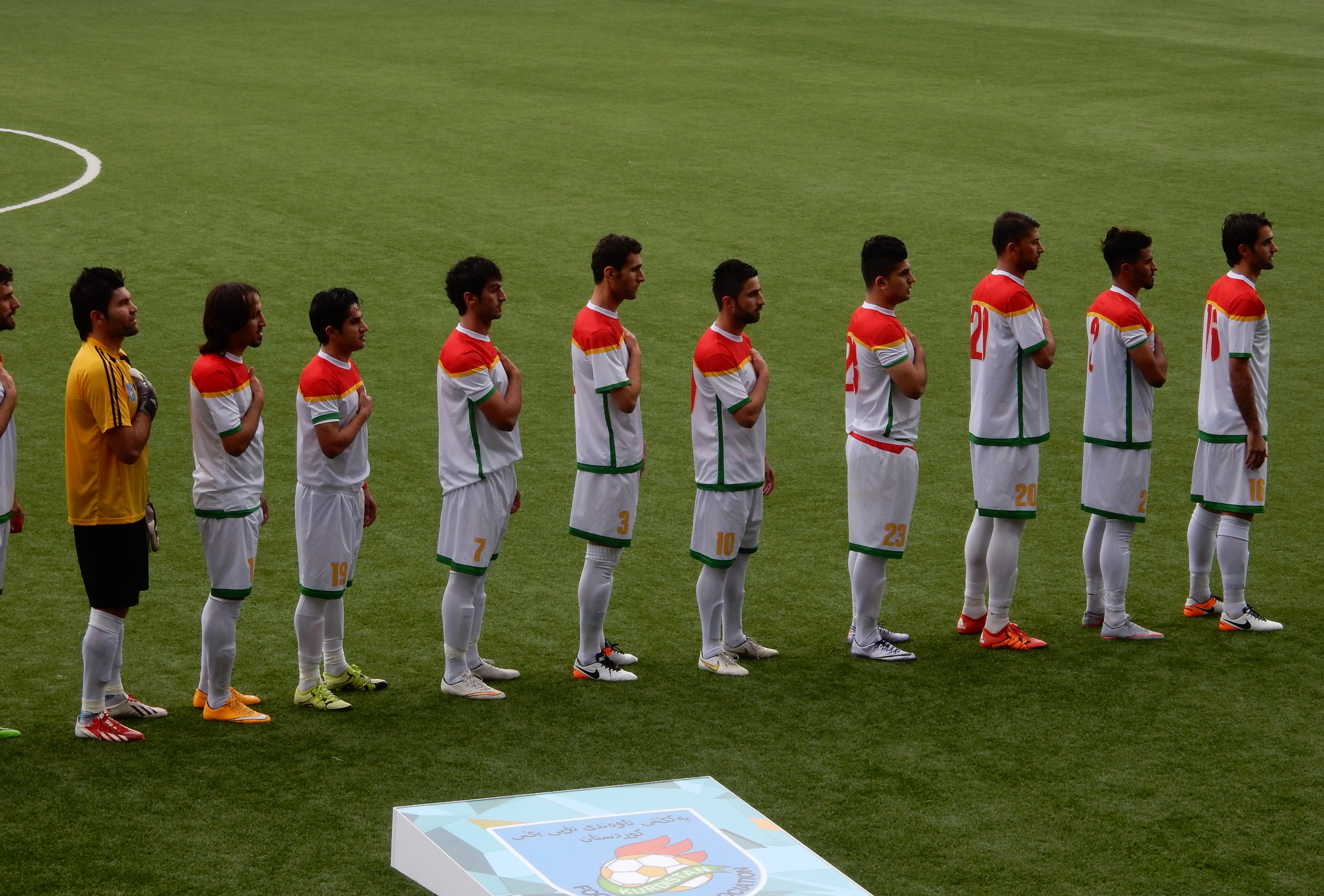
Football across borders
Dr Joel Rookwood’s latest film explores nationalism and statehood, and how football can bind people together. He talks us through his experiences in Abkhazia.
On my Twitter profile I claim to be an ‘explorer’ – not because I discover ‘new lands’ but because I value meaningful encounters with places new to me. Like most of the students I have taught in three separate universities now, I am both a visual learner and communicator.
It can be difficult to demonstrate the impact and reach of research, yet such criteria have become firmly established in gauging value. Meanwhile, teaching engagements increasingly demand creative approaches to educating students; lighting fires rather than filling pales, to paraphrase Yeats. So I have come to value the power of visual work to represent perspectives and convey meaning – to translate moments to memories.
Bringing the world to the lecture theatre
My research and teaching often centre on engagements from across the globe – and save the occasional field trip, it is rarely plausible to take an entire student body to such locations. Film offers an alternative means of exposing students to far-flung locations and their associated issues, essentially serving to bring the world to the lecture theatre.
One of my earliest documentaries centred on football, and an unlikely victory for my home town club: Liverpool’s 2005 Champions League victory in Istanbul. Subsequent films included a focus on conflict in Palestine, graffiti in Chile, education in India, development in Malawi and favela life in Brazil.
Such films showcase often fractured or marginalised communities, or ‘dangerous’ environments – places others often cannot visit and contexts they might not otherwise be able to access or understand.
Documentaries may not be suitable for all scholars and specialisms, but if a researcher’s audience is exclusively academic, they are probably doing something wrong. The advance of social media and video sharing websites have provided one gauge of public engagement and impact: my 2014 football hooliganism film The Animals has been viewed over 42,000 times.
The other world cup
My latest documentary, The Other World Cup: Football Across Borders, examines a 2016 football tournament held in Abkhazia, a disputed territory on the Russian border that is considered either independent from or autonomous within Georgia.
This is an incredibly complicated part of the world. Huge ethnic variation, more than forty spoken languages - a tenth-century geographer referred to the Caucasian mountain range as the mountain of tongues. It's long been a place of diversity and division.
For ‘nations’ that football’s governing bodies will not recognise or offer membership to, an alternative body has emerged which organises ‘international’ football competitions. CONIFA (the Confederation of Independent Football Associations) profess to ‘gather’ over 166m people from 42 member entities, and organised the inaugural independent Football World Cup in Abkhazia.
However, relatively little is known about this alternative tournament and its participants, and Abkhazia is almost impossible to get to. A BBC film-maker called Simon Reeve tried to get in, for a 2005 series called Places That Don't Exist; with all his kit and crew, and introductions from the UN personnel who governed the no-man’s land between the borders at the time, the Abkhazian border guards just told him to go away.
So If I'd tried to go in with fixers and crew, and all the kit, saying I was a documentary crew - admittedly a crew of one - I wouldn't have got in. As a result the film was made covertly, mostly on my phone, and improvised.
Every interview was arranged on the day. A woman approached me and said in five years here she'd never heard anyone speaking English, and could she take my photo. I suspected she might have been a representative of the KGB, as they still call the intelligence service in Abkhazia, but I played along - I said if she gave me an interview, I'd give her a photo. It turned out in the end she was a journalist, but that's the kind of situations I found myself in.
Nations and nationalism
The film examines connections between football, statehood, identity and conflict, focusing particularly on the Georgian-Abkhazian context – where thousands have been killed in conflict. I was the only outsider who was granted access to both sides of the divide, and interviewed fans, soldiers, journalists and event organisers spanning the political spectrum.
Travelling throughout the world I've seen the development of, and the normalisation of, nationalist politics. What happened in Brexit isn't an isolated case – look at France, the rise of Trump to the White House, the Netherlands, Austria...
What we tend to do with these people is pretend they don't exist, or belittle them, and I don't think either is particularly helpful, and I don't think it's proven successful, and perhaps recent events are testament to that.
So I hope that this film and the related research will offer insight into the nature of nationalist manifestations, and reveal something of the struggle of these de-facto nations, minority peoples and sports isolated territories – offering unique perspectives on the interests of locals and superpowers alike in these often neglected communities on the fringes of Europe.






